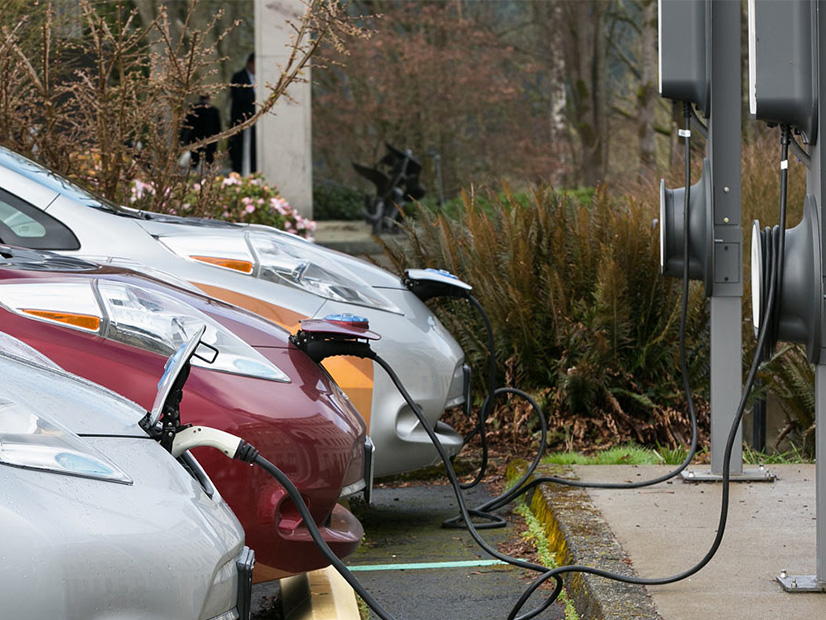Gov. Jay Inslee on Thursday vetoed one section of a bill that will require Washington to map out the growth of electric vehicles in the state, along with predicted infrastructure needs.
The vetoed section of House Bill 1287 called for the state to implement a fee or tax based on vehicle miles traveled. Once at least 75% of Washington’s passenger and light-duty vehicles were covered by the fee, the bill would have the state establish a goal that all such vehicles of model year 2030 or later sold or registered in the state be electric.
In a written statement, Inslee said he vetoed that portion of the bill because he did not want Washington’s conversion to electric vehicles to be legally linked to such a fee or tax. “Setting and achieving a goal of 100% electric vehicles is too important to tie to the implementation of a separate policy like the road usage charge,” the statement said.
Inslee’s statement said he is open to future discussions about such a “road usage charge” as a part of a broader transportation revenue package.
“I am committed to getting to zero-emission transportation as quickly as possible. In fact, Washington is leading the way by building electric vehicle infrastructure, procuring zero-emission transit vehicles, building electric ferries, providing financial incentives for electric vehicle purchases and advocating for a national 100% zero-emission vehicle standard by 2035,” Inslee said.
Overall, HB 1287 calls for the Washington Department of Transportation to set up a system by 2023 to predict the growth of EVs in the state, where that growth might occur, how many charging stations will be needed, and where those charging stations should be located. The legislation also calls for the state’s utilities to use those state predictions to map out where charging stations should be installed in their own areas. (See Wash. Bill Would Chart Course for EV Buildout.)
The bill also orders the Washington Building Code Council to improve on the standards that it set for charging stations in 2019.
The Washington Senate passed the bill 25-23, while the House approved it 54-43.




